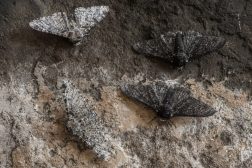Definition
noun
A genus comprised of species of parasitic nematodes characterized by resembling earthworms and having three-lipped mouths
Supplement
Ascaris is a genus of parasitic nematodes. They belong to the family Ascarididae, Phylum Nematoda. It includes species of nematodes that infect the intestines of humans, pigs, and horses. For instance, Ascaris lumbricoides is a parasitic gut dwelling nematode worm, of major medical significance, used in developmental studies. It is regarded as the largest intestinal roundworm and infects humans. Another is the ascarid of pigs, particularly Ascaris suum. A. suum is a species of parasitic nematode usually found in domestic pigs and a few other animals. Human infection can also occur, presumably as result of handling pig manure, and can lead to intestinal obstruction. Ascaris equorum is a large heavy-bodied ascarid nematode extremely common in the small intestine of horses and other equids. Larvae may develop in man or mice, but do not reach the adult stage.
The eggs of Ascaris are deposited in feces and soil. They are round or oval in shape. The adults are cylindrical and fusiform, and creamy white or pinkish in color. They have complete digestive system. They respire by simple diffusion. They have a nerve ring and several longitudinal nerve cords. The species exhibit sexual dimorphism. The male is shorter and slender than the female.
Word origin: Greek askarís (“an intestinal worm”)
See also:
- ascarid
- ascariasis
- Ascaris lumbricoides
- Ascaris suum







